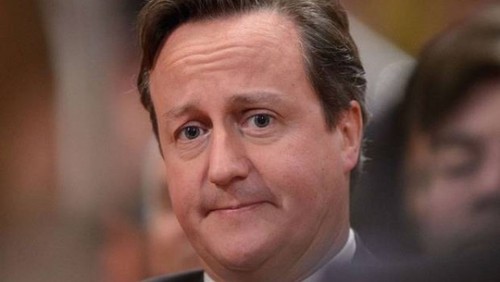So, does David Cameron really ‘resent’ the poor, as per his allegedly ‘Freudian’ slip during Wednesday’s address to the Conservative Party Conference? Did his tongue lap into his unconscious and return with what he really thinks, which ‘we’ all ‘knew’ in the first place? Is this, at last, confirmation that the Bullingdon Club really is the id of The Party, the door barely closed against this storehouse of vicious and punitive elitism?

If one thing is more predictable than Tory gaffes in 2014, it’s liberal glee at Tory gaffes. You can ascertain this in, say, the minimality of the interval between Boris Johnson fucking up in public and Another Angry Voice turning the fuck-up into meme which, if you were to believe the vast number of people who sare it, penetrates to the core of a klepto-aristo-plutocratic coup de main. In every error, ‘we’ take pleasure in the crass ineptitude and, for that matter, crassness-in-itself, of ‘them’, taking it as an undeniable sign that ‘they’ have been forced right onto the electoral ropes.
But, as an individual, or even as a representative of a group of individuals, David Cameron almost certainly does not lie awake at night resenting the poor. He doesn’t personally blame the poor for his lot; in fact, one would probably be fair in assuming that he can happily, if rather dreamily, envisage a Tory-utopian scenario in which nobody is poor because everybody is, by his definition, ‘hard-working’. His aetiology of poverty might be ludicrously underthought, but that should not be confused with any common definition of ‘resentment’. What it would be fair to say is that ideology – specifically neoliberal ideology – has to produce hierarchies of deservingness in order to legitimate its own unconcealable inequalities. If it ‘resents’ the poor, it does so in an entirely stylised way, a performance – even if that role is method-acted – of loathing which stretches across the Real that is neoliberalism’s structurally essential material imbalance. It would be easier to think that Cameron’s government hate the poor, in other words, than to come to terms with the fact that poverty is a necessary condition of our socio-economic life-world.
Maybe, then, Cameron’s error needs to be read as a Lacanian, rather than a Freudian, slip. It was, of course, at another conference, in Rome in 1953, that Lacan made the memorable declaration that the Freudian cadre was, perhaps insurmountably, not Freudian enough. I’ve long believed that les non-dupes errent was the smartest of Lacanian formulae insofar as it militates for a rejection of the ‘false meaning/ real meaning’ binary which has besmirched Freud’s legacy in popular culture. Modern British liberalism provides an endlessly extending vista of non-dupes revelling in their self-anointed interpretative brilliance, as though it were enough on an analytical level to simply point out that Britain is becoming increasingly unequal and its Welfare State is being dismantled. ‘We’ can identify with the jejune obviousness of Banksy or Cassetteboy’s ultra-limited satirical visions, or we can disarm the spectacular power, the curiously immobilising force, of Tory errors by critically addressing the way they speak to our own desires and resentments.

